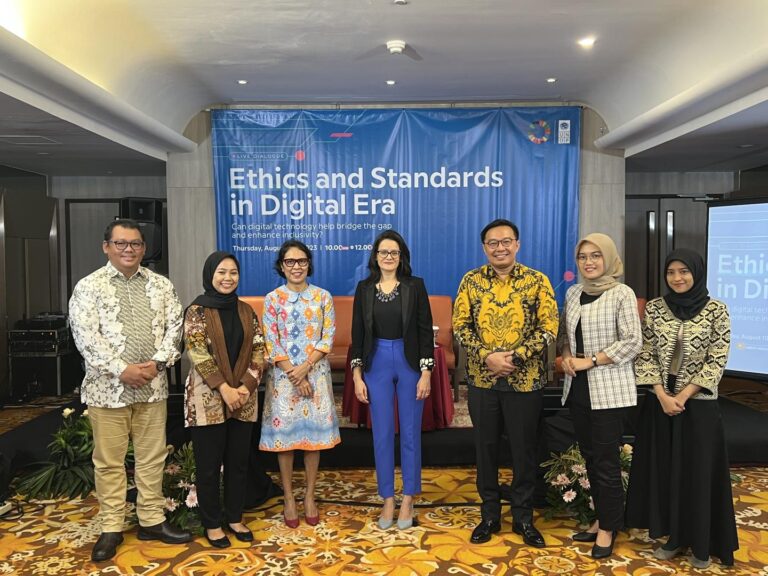Speakers at the opening of the Workshop on Digital Ethics and Standards Ainagul Abdrakhmanova/ UNDP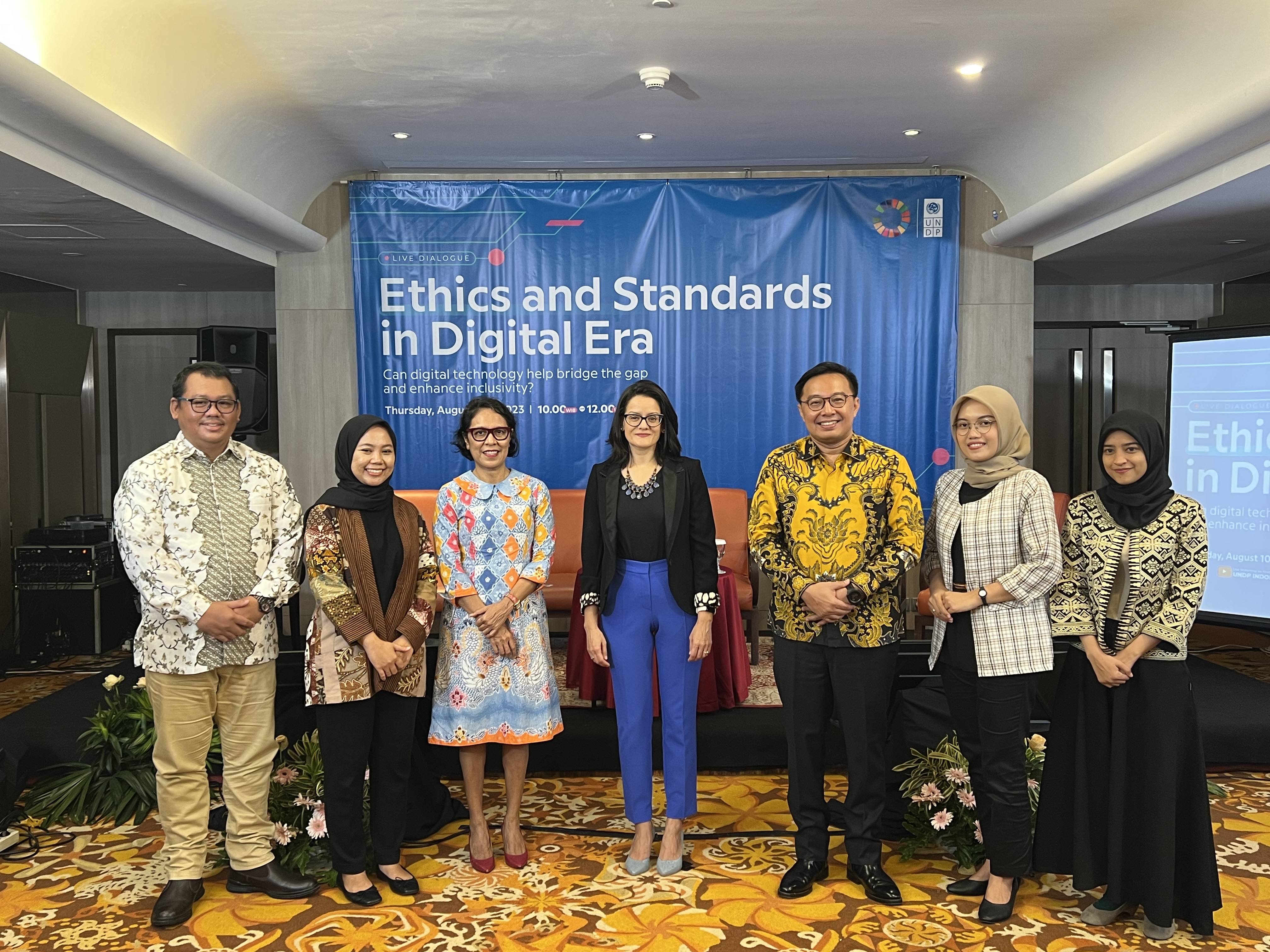
Jakarta, 10 August 2023 – The United Nations Development Programme (UNDP) hosted a pivotal seminar in Indonesia today, delving into the critical domains of digital rights and ethics. The event, under the theme “Navigating Digital Rights and Ethics: Trends, Principles, and Practices,” brought together distinguished speakers from civil society organizations and the private sector. Their discussions centered around the intricate challenges surrounding the safeguarding of digital rights and data protection in Indonesia, as well as the ethical dimensions inherent in digitalization and user conduct. This seminar marked the second installment in a comprehensive three-part policy dialogue series, addressing the pressing issue of the digital divide in Indonesia.
Aligned with its commitment to supporting Indonesia’s journey towards the Sustainable Development Goals (SDGs), UNDP is actively advancing initiatives focusing on digitalization, strategic innovation, and development financing. This enlightening dialogue series not only addresses the nuances of digital rights but also embarks on an exploration of the escalating polarization within the digital realm, a paramount subject slated for examination in the final segment. The discourse is complemented by comprehensive analyses enriched with insights from diverse stakeholders.
Sujala Pant, UNDP Deputy Resident Representative delivers her opening remarks Ainagul Abdrakhmanova/ UNDP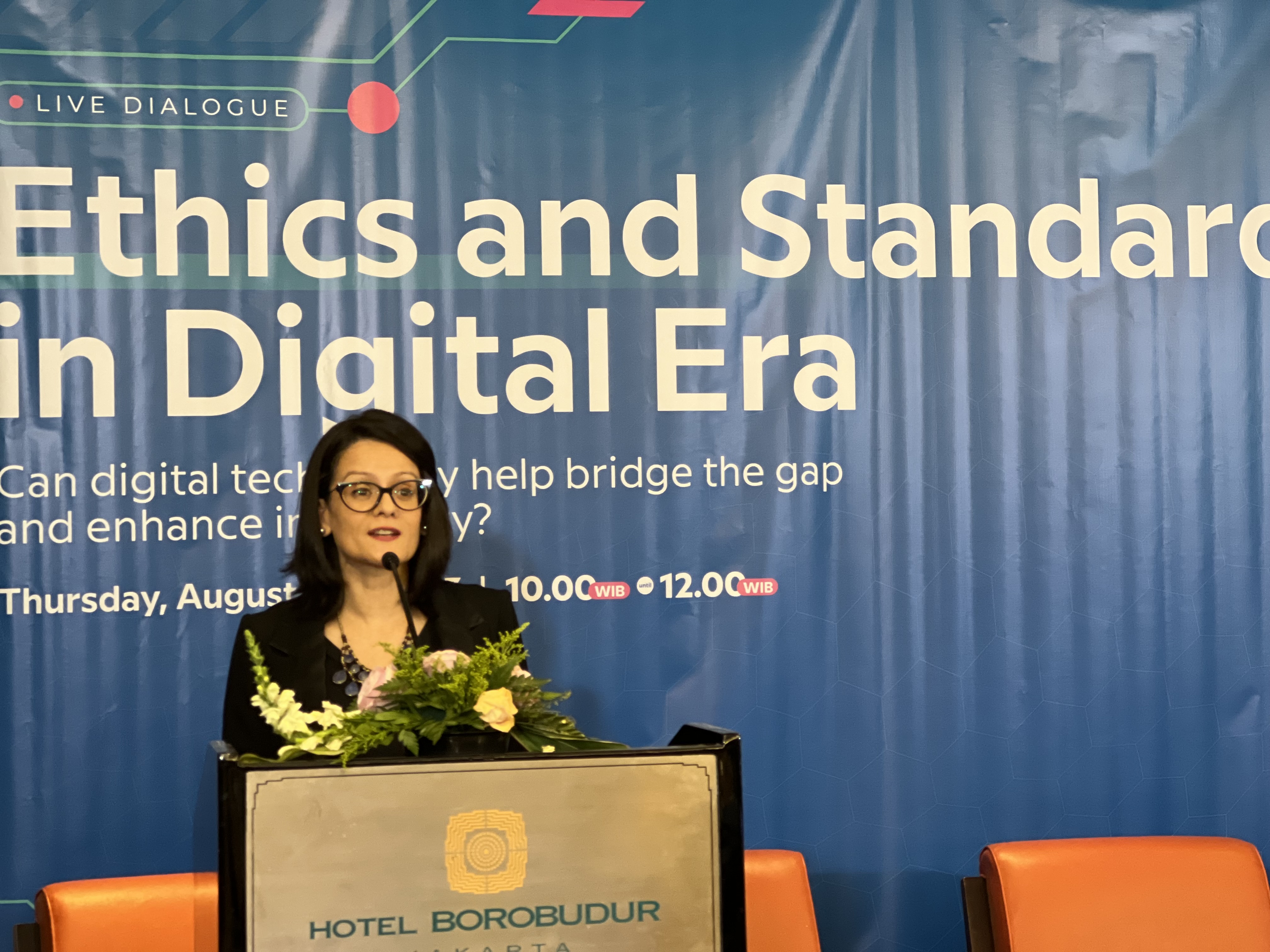
Ms. Sujala Pant, Deputy Resident Representative of UNDP Indonesia, opened the seminar by underscoring the profound significance of the discourse on digital rights. She stated, “The absence of robust standards and safeguards creates an environment where participation in the digital economy is hindered, government services are less accessible, and the potential of technology is not fully harnessed. The concerns about data privacy, algorithmic bias, and the responsible use of digital media demand our immediate attention.”
Sharing ongoing research into data protection in Indonesia, Ms. Treviliana Eka Putri, UNDP’s Digital Divide Consultant, emphasized the collective responsibility for data security and privacy. She raised concerns over the “desensitization” phenomenon resulting from repeated breaches, with as many as 35 cases recorded in the first quarter of 2023 alone. Highlighting the urgency, Treviliana conveyed, “While we deliberate on security and privacy, we must recognize the existing lack of access and digital literacy, underlining the glaring digital divide. Beyond infrastructure provisioning, there is a pressing need for comprehensive capacity-building programs, beginning at the primary education level, to impart digital literacy and equip individuals with essential skills for navigating this technology-driven era.”
Mr. Bobby Adhityo Rizaldi, a Member of Commission I in the House of Representatives of Indonesia Ainagul Abdrakhmanova/ UNDP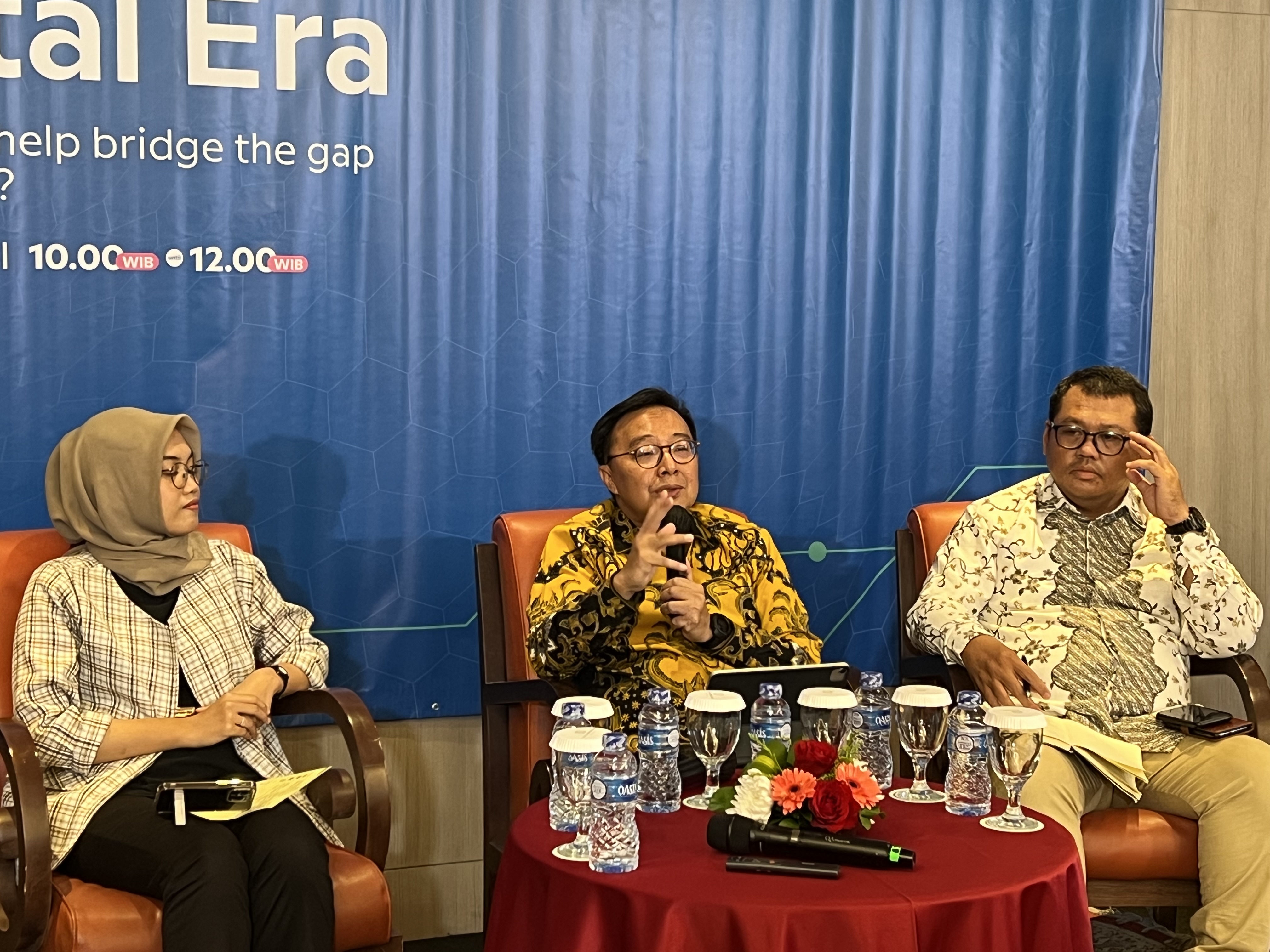
Mr. Bobby Adhityo Rizaldi, a Member of Commission I in the House of Representatives of Indonesia, acknowledged the regulatory gaps pertaining to artificial intelligence. He stated, “We are actively working towards formulating regulations that shield personal information, including consumer data, from exploitation by big data and AI conglomerates.” Bobby further elucidated Indonesia’s current regulatory landscape, highlighting the Electronic Information and Transactions (ITE) Law and the recently enacted Personal Data Protection (PDP) Law as key milestones in the realm of digital rights.
Ms. Nindhitya Nurmalitasari, Analyst of Personal Data Protection Cooperation at the Ministry of Communications and Informatics, underscored the tailored approach required for digital rights and ethics, considering Indonesia’s unique digital adoption landscape. She revealed ongoing governmental efforts, explaining, “In the aftermath of the PDP Law’s passage, the Ministry of Information and Communications is meticulously crafting two regulations – one governing the implementation of the PDP Law and the other outlining the establishment of an agency responsible for monitoring its execution.”
Ms. Nindhitya Nurmalitasari, Analyst of Personal Data Protection Cooperation at the Ministry of Communications and Informatics Ainagul Abdrakhmanova/ UNDP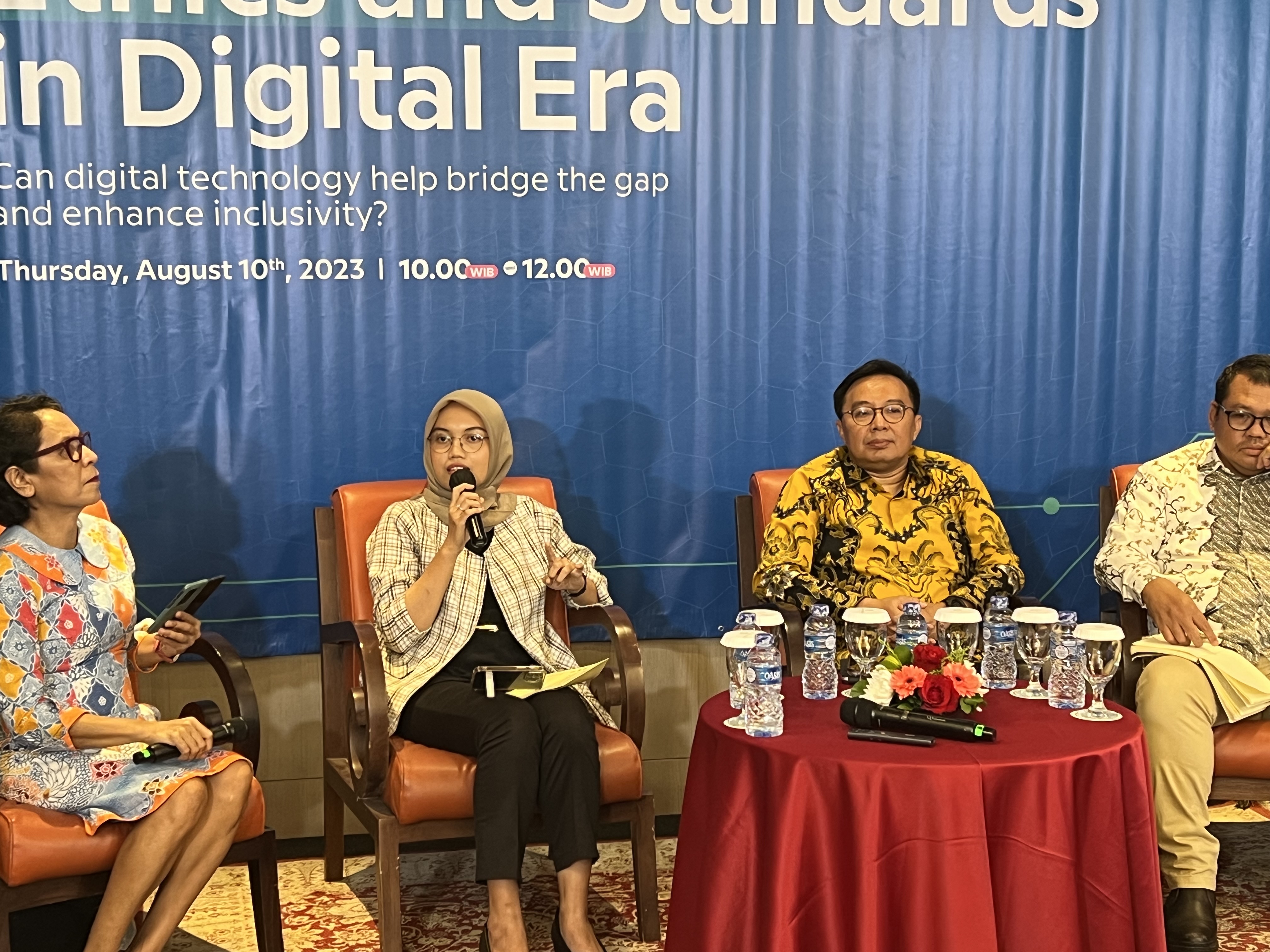
Mr. Damar Juniarto, Executive Director of the Southeast Asia Freedom of Expression Network (SAFEnet), advocated for heightened awareness among average internet users regarding data collection by AI and big data enterprises. He advocated, “A fundamental shift involves curtailing oversharing of personal information, even as we recognize the prevalent usage of social media features without second thoughts. Simultaneously, cultivating digital ethics and norms while ensuring inclusive participation from vulnerable groups, including women, children, and individuals with disabilities, is imperative in the formulation of new digital regulations.”
Ms. Amalia Suri, Executive Director of Emancipate Indonesia, illuminated the impact of algorithms on the gig economy and its ramifications for decent working conditions. She emphasized, “The gig economy’s labor force, often labeled as ‘partners’ by ride-hailing app companies, faces rampant exploitation. In a stark reality, workers labor excessively, deprived of rest or breaks, for fear of algorithmic reprisals. Even after toiling over ten hours daily, they remain trapped in unlivable wage conditions.”
The cumulative insights and outcomes from the three-part dialogue series will culminate in a policy think piece, slated for release later this year.
For media inquiries, please contact:
UNDP Indonesia Senior Advisor
Juliaty Ansye Sopacua
Email: Juliaty.Sopacua@undp.org

